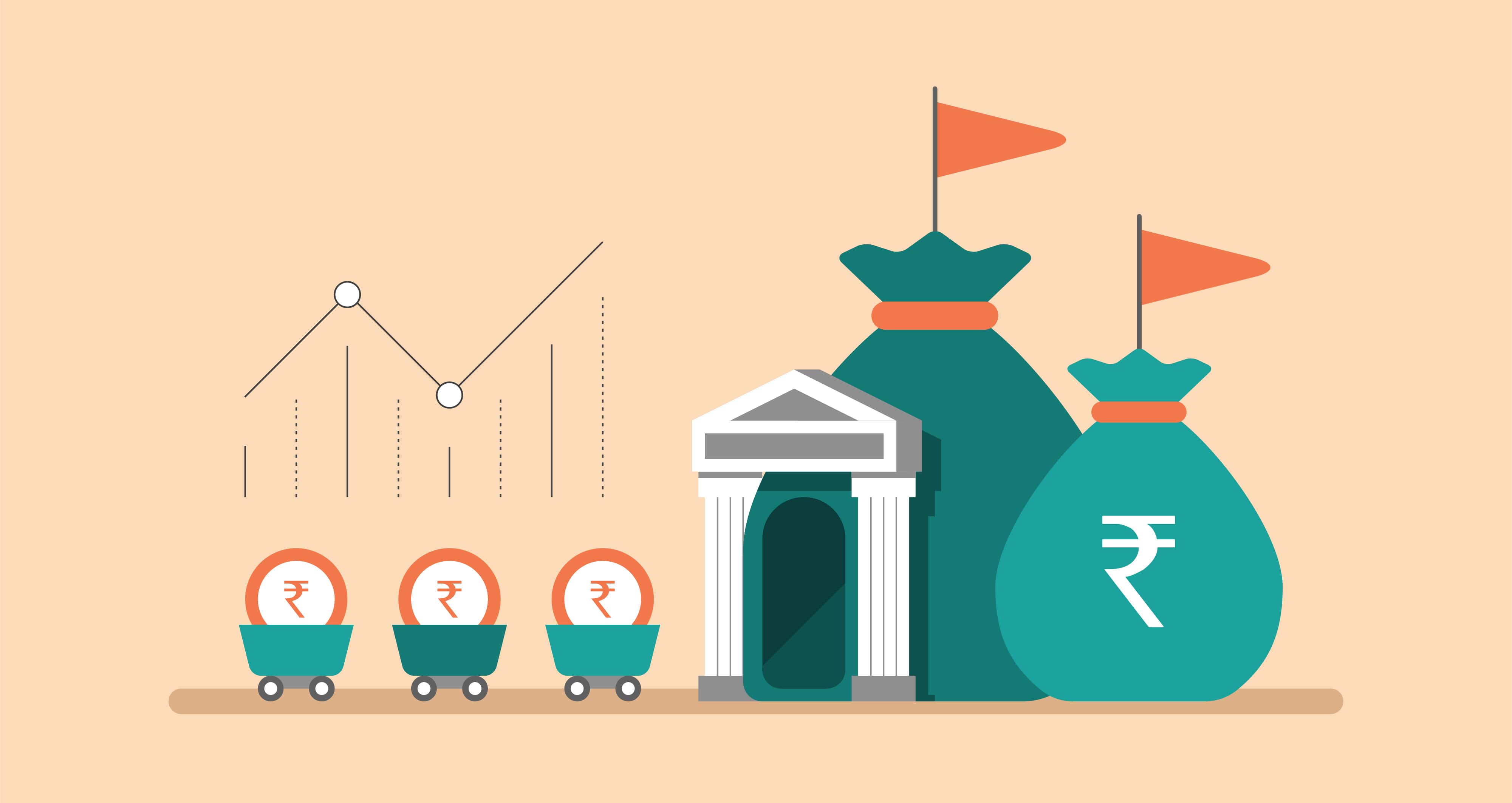What are the Short Investment Options Available in India?

Introduction:
It is considered a good practice to have short-term investment instruments in your financial portfolio. This is because short term investments can provide the dual benefits of liquidity as well as low risk. Short-term in the financial world would mean a duration ranging from 1 to 5 years. Investing is usually done over the long term in order to reap the maximum benefits. If you want to invest your surplus money or savings somewhere and earn returns on it for a short term, there are plenty of options available for you.
5 Short Term Investment Options in India
These are discussed below in detail so that you can pick the financial instruments that are best suited to your financial goals:
1. Savings Account
2. Fixed Deposits
3. Recurring Deposits
4. National Savings Certificate
5. Debt mutual funds
1. Savings account
One of the most obvious and preferred choices of short-term investment with the highest liquidity are your savings accounts. When you deposit or park your savings in an account, you can withdraw that money at any point of time through ATMs and other modes. It is also possible to transact using this money through online banking and mobile wallets. Therefore, they score high on the liquidity spectrum.
As for the return on your savings, it usually hovers around 4-5% for a savings account. This is not a very high rate. Savings accounts primarily serve the purpose of liquidity and ready accessibility of funds.
2. Fixed deposits
Fixed deposits are another one of the popular traditional routes of short-term investment. If you want to park your savings at a place where you can earn a high rate of return on them, FDs are a great avenue. In fact, the returns on fixed deposits are not influenced by the ups and downs of the market. The interest rate is fixed in these instruments of financial investment. Besides, there is enormous flexibility since it allows you to choose the tenure and the amount.
To add to that, there are FDs that come with tax benefits too: fixed deposit account holders can claim a tax deduction for investment up to Rs 1.5 lakh in a tax-saving fixed deposit account under Section 80 C of the Income Tax Act. In any case, the interest you earn from fixed deposits is only taxable when you cross Rs 10,000.
It also scores decently on the liquidity parameter as the funds can be drawn from FDs after paying a penalty.
3. Recurring deposits
As the name suggests, these deposits involve the investment of a fixed sum of money into the account each month. They are a substitute for fixed deposits if you are not too keen on investing lump sum immediately. It can help inculcate a good savings habit.
The interest received on the deposits is counted as a part of your taxable income.
4. National Savings Certificate (NSC)
These are short term investment instruments available at the post office and are secure because they are backed by the government. If you do not like taking a lot of risk, NSC is a good option. The interest rates usually hover around 7-8%. They also provide the benefit of tax deduction under Section 80C of the Income Tax Act for the investment amount, but the interest you earn is subject to tax.
5. Liquid funds/Debt mutual funds
Debt mutual funds invest money in government securities. You can withdraw funds at any time and they yield an interest rate of up to 7%. Various funds are available, ranging from 91 days to 12 months in their maturity tenure.
Conclusion:
In accordance with the level of risk you are comfortable at, you can choose short-term investments to diversify your portfolio. Along with short-term investments, it is important to have variety in your portfolio in terms of liquidity and risk. Although short term investments are a go-to financial option, it is essential to include financial instruments which provide long term benefits.
For instance, you can opt for a term insurance product like the Bajaj Allianz Life Smart Protect Goal, available on Bajaj Markets, which helps you with the goals of financial protection and savings in the long run. The Bajaj Allianz Life Smart Protect Goal offers you a sum assured of Rs. 1 crore at an affordable premium. It also provides you with a number of riders, from critical insurance to accidental death. Term insurance also comes with two-pronged benefits of financial security as well as tax savings. While giving you a financial cushion to fall back on in times of need, it can also provide you with a way to save on taxes. The premiums you pay are eligible for deduction under Section 80C of the Income Tax Act. The payouts you receive from the policy are exempt from taxation under Section 10(10D). You can find this and many more rewarding financial instruments on Bajaj Markets.
Bajaj Markets, a subsidiary of Bajaj Finserv, is a one-stop digital marketplace that has been created for consumers on the go. It offers 500+ financial and lifestyle products, all at one place. At Bajaj Markets, we understand that every individual is different. And that’s why we have invested in creating a proposition – Offers You Value. A value proposition that ensures you get offers which are tailor made for you. We also offer an amazing product range and unique set of online offers across Loans, Insurance, Investment, Payments and an exclusive EMI store. Be it in helping you achieve your financial life goals or offering you the latest gadgets, we strive to offer what you are looking for. From simple and fast loan application processes to seamless and hassle-free claim-settlements, from no cost EMIs to 4 hours product delivery, we work towards fulfilling all your personal and financial needs. What’s more! Now enjoy the same benefits in just one click with our Bajaj Markets App.
